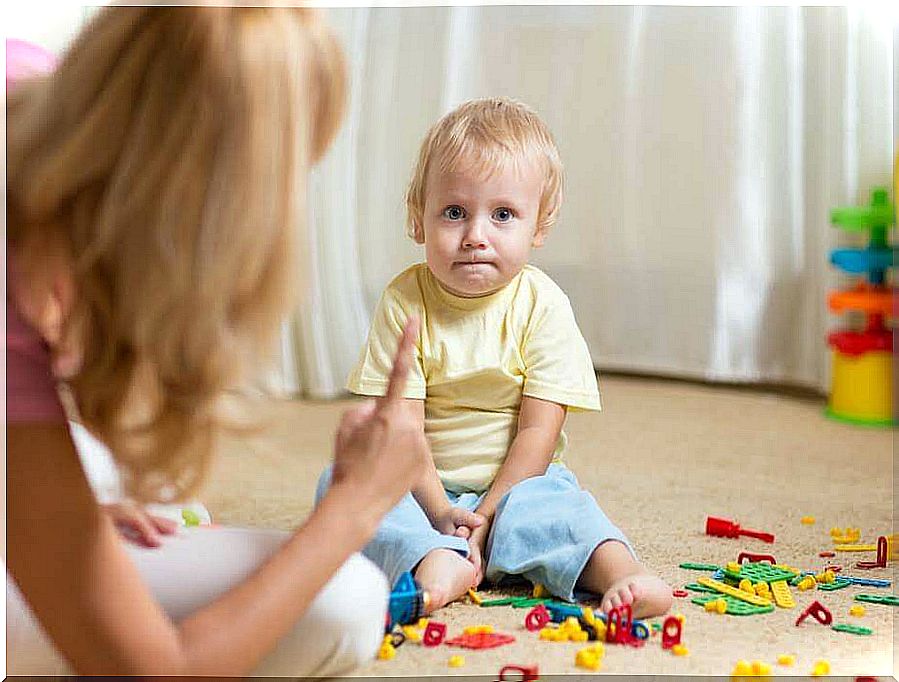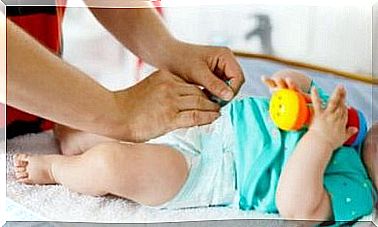8 Tips Against Parental Screaming

Certain behaviors of our children often make us lose patience. Many parents yell at their children in these situations to get rid of their frustration and correct their offspring. But parental screaming is not a solution, on the contrary: children suffer from it and will imitate this behavior in the future. There are other methods that are far more helpful and effective.
Screaming is a destructive primal feeling, so it is not always easy to control yourself. This often happens because parents imagine that their children should react more mature, even though they are only at the beginning of their learning process and have to acquire values and manners first.
Sometimes we forget how easy it is to be a child: it is mostly about exploring the environment in play and it is quite normal that children do not always obey when we assign them a task.
But an upbringing based on parental screaming, frustration, and authority can only make this situation worse. The child can become rebellious or even aggressive as a result. Another possible consequence is a disturbed affective world in the child.
Often it is an automatic reaction, but many parents were often yelled at even as children and then repeat this behavior pattern themselves. However, you should not lose patience and self-control and always show great understanding. Because parental screaming is a type of abuse.
Start by educating yourself to respond properly in difficult situations. Remember, there are far better ways to reprimand your children than yelling at them.
8 tips to stop parental screaming

Although children are naturally very happy and open-minded, they are also sensitive and sensitive. Therefore, parental screaming can do more harm than we imagine. But there are simple alternatives to improving the relationship without screaming. We have a few tips for you:
1. Identify the situations in which parental yelling occurs
Observe the everyday situations in which you lose patience and tend to yell at your child. This is the first step in avoiding such moments.
2. Admit that yelling is synonymous with abuse
Nobody likes to be treated with anger and anger. So it’s important to admit to yourself that yelling at someone is a form of verbal abuse. There are many ways that you can point out your mistakes to children without raising your voice.
3. Asking forgiveness whenever necessary
We are all human and can make mistakes. Parents are not infallible either! Stress, pressure and multiple stresses often cause them to lose their patience. If this is the case, it is best to ask your offspring for forgiveness afterwards. Remember that you have an important role model role and that your children will learn important values.
4. Make agreements
If you would like your little ones to take on certain household chores or change their behavior, talk to them with patience and understanding and make arrangements with them. If these are still not met, you have to take action and, for example, withdraw privileges from the child.
5. Psychological support to bring parental screaming under control
A parenting professional can give you tools to help you control difficult situations and change your own behavior and that of your children.
6. Exercise patience
It is not easy to control emotions. For example, you can learn a breathing technique for this. Take deep, slow breaths before taking any other steps. This is how you can calm your anger and then act properly.
7. Let your children understand that something is wrong
Children do not think the same way as adults, so it is better to talk to them patiently and lovingly. In this way they can better understand their mistakes and become aware that they need to change their behavior.
8. Relax now and then!
Being a mother or father is often exhausting and exhausting. It is therefore important that you take time for yourself from time to time to relieve stress. Because then you are sure to be more relaxed when you come home and family life can be more harmonious.
Be a good role model!

As already mentioned, you must not forget your role as a role model. Perhaps you were yelled at often as a child and internalized this behavior. But it’s never too late to change! You yourself should be a positive role model for your children, the parental screaming makes no sense in their upbringing.
Parents are the most important role models for their children. Aggressive behavior only leads children to believe that it is right and normal. You should therefore attach great importance to treating your offspring lovingly and with respect.
All of life is a learning process, regardless of age. We must always be ready to improve as we go, to accept mistakes in order to learn from them and do things better in the future. It is never too late!









